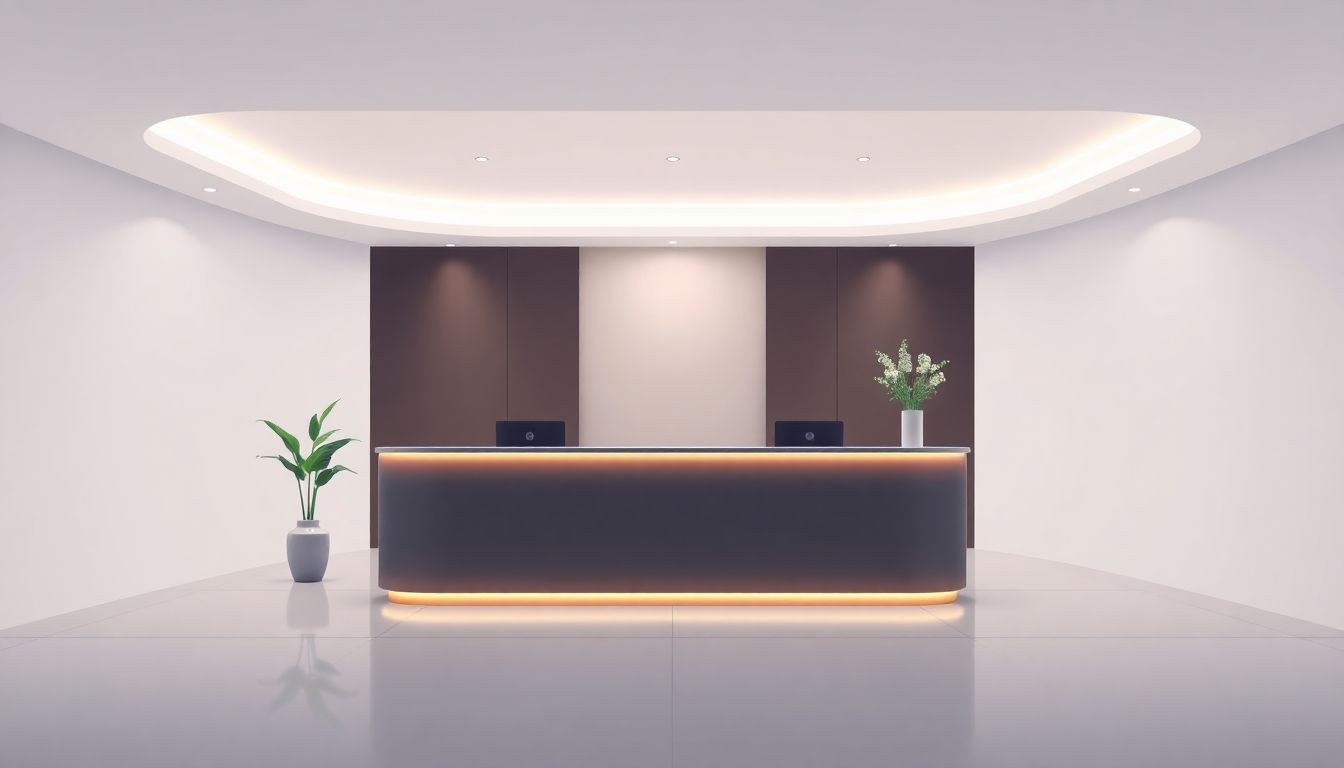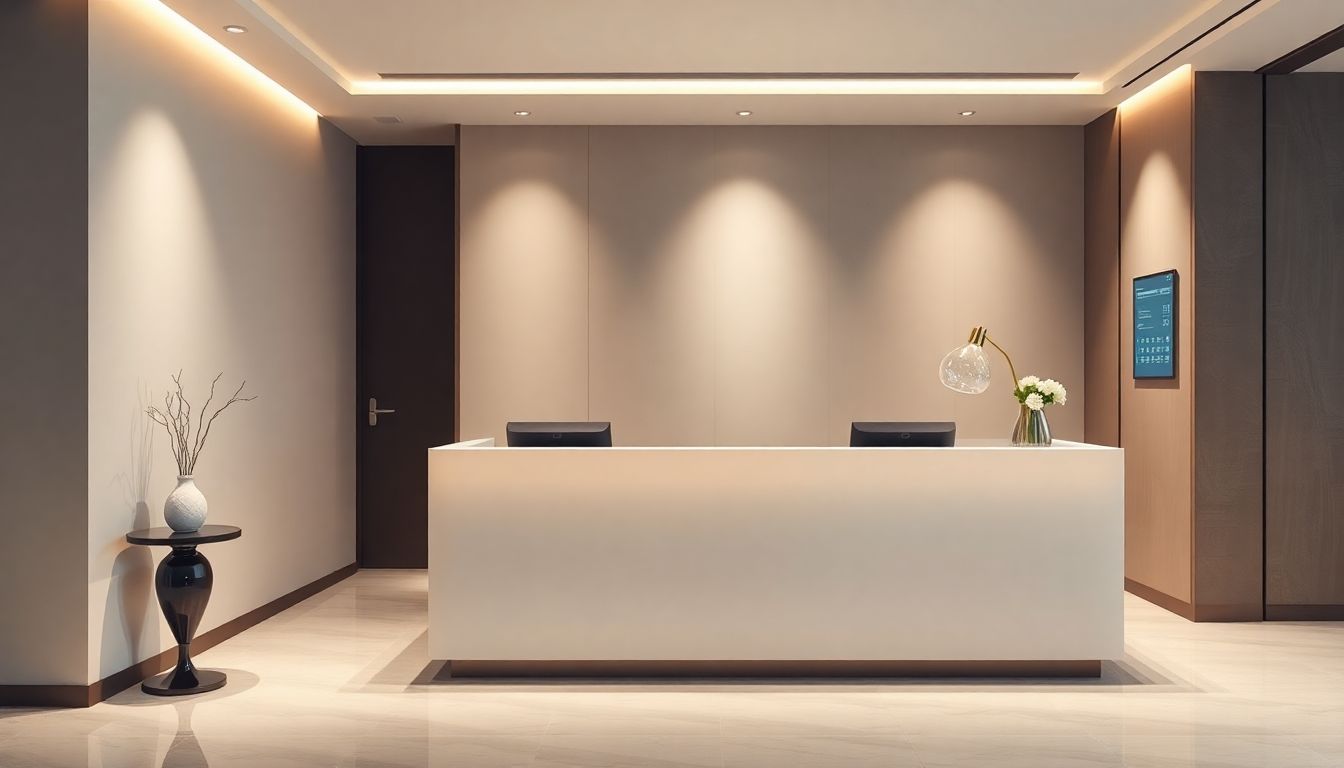Many hotel owners feel overwhelmed by managing everything smoothly in today’s fast-changing world. If you’re worried about staying ahead or making your operations easier, you’re not alone. Keep reading, and you’ll see how AI hospitality management tools can help make your hotel run more smoothly—and maybe even make your life a bit easier.
Stay with us, and you’ll discover the key features of these tools, top solutions in 2025, and how to pick the right ones for your hotel. We’ll also look at why AI is shaping the future of hotel management, so you can plan your next move with confidence.
Key Takeaways
Key Takeaways
- AI tools in hotels streamline operations by automating tasks like housekeeping schedules, inventory, and guest inquiries. They help staff focus more on guest service, improving overall experience.
- Features like predictive analytics, personalized recommendations, and chatbots boost revenue and guest satisfaction. They allow hotels to optimize pricing, tailor stays, and respond instantly to guests.
- Leading AI solutions such as Sabre and NetSuite help with revenue management, bookings, and financial tracking. Choosing the right software depends on your hotel’s needs and integration capabilities.
- Integrating AI smoothly involves assessing current processes, choosing systems with compatible APIs, training staff, and testing gradually. Clear communication and adaptability are key.
- Implementing AI can face challenges like data privacy and staff resistance. These can be managed by compliance, training, and phased rollouts, ensuring a successful transition.
- Hotels using AI report increased bookings, higher revenues, and improved operational efficiency, proving these tools are effective when used thoughtfully.
- AI will change staff roles in 2025, requiring new skills such as managing systems and analyzing data. Upskilling your team boosts adaptability and hotel performance.

1. How AI Hospitality Management Tools Improve Hotel Operations in 2025
AI hospitality management tools are transforming how hotels run their day-to-day activities, especially in 2025 when more properties are adopting these solutions. These tools help streamline operations, improve guest experiences, and boost revenue, making hotel management more efficient and less stressful.
One of the biggest impacts is automation—think about AI systems handling repetitive tasks like housekeeping scheduling, inventory management, and maintaining maintenance logs. This means staff can focus more on guest service rather than admin chores.
AI also enables real-time data analysis for making smarter decisions. For example, predictive analytics can forecast demand patterns, allowing hotels to adjust pricing dynamically—leading to better occupancy rates and higher income.
Plus, AI-powered chatbots and virtual assistants are helping hotels handle guest inquiries 24/7, providing instant responses and freeing up staff from answering common questions repeatedly.
With AI tools, hotels can monitor online reviews and guest feedback automatically, spotting issues early and responding faster. This continuous feedback loop helps improve service quality and guest satisfaction overall.
2. Key Features of AI Tools that Enhance Hospitality Management
At the core, AI tools for hotels come with features like predictive analytics, automation, and personalized guest engagement. These are what make them truly useful for boosting hotel operations.
Predictive analytics is a game-changer—using data to forecast demand, optimize pricing, and forecast staffing needs. For example, tools like Revnomix have helped hotels increase revenue by up to 10% simply by better predicting when guests will book or cancel.
Automation features include AI-driven scheduling for housekeeping or maintenance, inventory management, and even automated check-in/check-out processes. These reduce errors and save time.
Personalization engines analyze guest data to offer tailored recommendations for activities, dining, or room preferences, making every stay feel special and customized.
Some AI solutions also include chatbots that provide instant support for guest inquiries, booking modifications, or local recommendations—saving staff and delighting guests.
3. Leading AI Software Solutions for Hotels in 2025
If you’re wondering which AI tools are making waves in hospitality this year, a handful of solutions stand out. These platforms are helping hotels get ahead in a tough market.
One top player is Sabre Hospitality Solutions, which offers AI-driven revenue management and reservation systems. They help hotels optimize pricing and predict demand with high accuracy.
Sellaitool.com is another interesting platform, especially if you’re thinking about buying or selling AI-powered hotel tools. They offer a marketplace where you can find verified solutions that can instantly boost your hotel’s efficiency or guest engagement.
Another notable solution is HotelTechReport, which reviews and compares AI platforms focusing on guest experience, operations, and revenue management to help hospitality managers choose the right tech.
Finally, NetSuite’s ERP system integrates AI into financial and inventory management, making it easier to keep track of expenses and optimize resource allocation.

8. How to Integrate AI Tools Smoothly into Hotel Workflows
Getting AI tools to work well with your existing hotel systems isn’t as complicated as it sounds. Start by mapping out your current processes and pinpoint where AI can make the biggest difference.
Choose solutions that offer integrations with your property management system (PMS), booking engines, and other essential software. For example, partnering with AI providers that support APIs makes connecting systems easier.
Train your staff on how to use new AI features—consider short workshops or tutorials to show how chatbots handle guest inquiries or how predictive analytics can inform staffing plans.
Start small—pilot the AI tools in one department like reservations or housekeeping—and measure how they improve efficiency before rolling out across the entire hotel.
Keep communication open: gather feedback from staff on what works and what doesn’t, then adjust your workflows accordingly.
Regularly review system performance and usability, and don’t be afraid to tweak the AI solutions—sometimes a simple setting change can drastically improve results.
9. Overcoming Common Challenges When Implementing AI in Hotels
Adopting AI isn’t always a breeze; hotels face hurdles like data privacy concerns, staff resistance, and integration issues. The key is to approach these challenges with a clear plan.
First, ensure your hotel complies with data protection laws like GDPR or CCPA. Inform guests about how their data is used to build trust—and avoid fines.
Staff might worry about AI replacing jobs, so communicate that these tools are there to support, not replace, their roles. Highlight how automation can free them up for more meaningful guest interactions.
For integration hiccups, work closely with AI vendors who offer support and custom setups. If needed, hire a tech consultant to bridge gaps between systems.
Start with a phased implementation—test AI tools in one area before expanding. This helps manage risks and adapt solutions early on.
Stay flexible: if some AI features aren’t performing as expected, consider alternative solutions or customization options.
10. Real-Life Success Stories Using AI in Hospitality
Many hotels have already seen what AI can do firsthand. Take, for example, a boutique hotel that increased direct bookings by 15% after implementing a chatbot that answered common questions and helped with reservations 24/7.
A major resort used predictive analytics from [Sabre Hospitality Solutions](sabrehospitality.com) to adjust pricing in real time, leading to a revenue boost of nearly 10% during peak seasons.
Another hotel chain automated their housekeeping schedules with AI-driven tools that analyze guest check-in and check-out data—saving staff hours and reducing guest complaints about room availability.
These stories show that when hotels pick the right AI solutions and implement them thoughtfully, they can see tangible improvements in revenue, guest satisfaction, and operational ease.
11. How AI Will Affect Hotel Careers and Skills in 2025
AI isn’t here to take away jobs but to change how hotel staff work. Employees will need new skills—like managing AI systems, interpreting data insights, and troubleshooting technical issues.
This means ongoing training will become a part of hotel life. Think about team members learning to navigate AI dashboards or handle guest interactions that are powered by virtual assistants.
Supervisors will shift from administrative tasks to more strategic roles—analyzing AI-driven reports and making decisions that boost performance.
Hotels that invest in upskilling their teams will find it easier to adapt to the changing landscape and stay competitive.
Encouraging a culture of learning and openness to new tech will help staff see AI as an ally rather than a threat.
FAQs
AI tools streamline processes like booking, billing, and guest communication, reducing errors and saving time. They enable hotels to operate more efficiently, provide personalized experiences, and respond quickly to guest needs in 2025.
Features like real-time analytics, automated guest communication, predictive maintenance, and personalized marketing help hotels improve service delivery, reduce costs, and better manage operational tasks.
Popular solutions include AI-powered booking systems, virtual concierge apps, staff scheduling tools, and guest experience platforms designed specifically for the hospitality industry in 2025.
Hotels should assess their needs, choose solutions with proven results, and ensure staff training. Gradual implementation helps integrate AI smoothly and maximizes its benefits for operations and guest satisfaction.